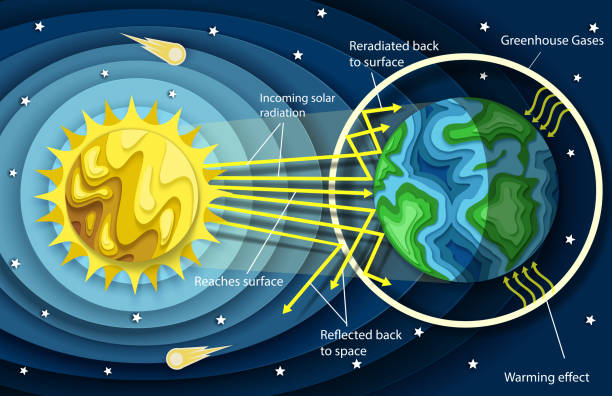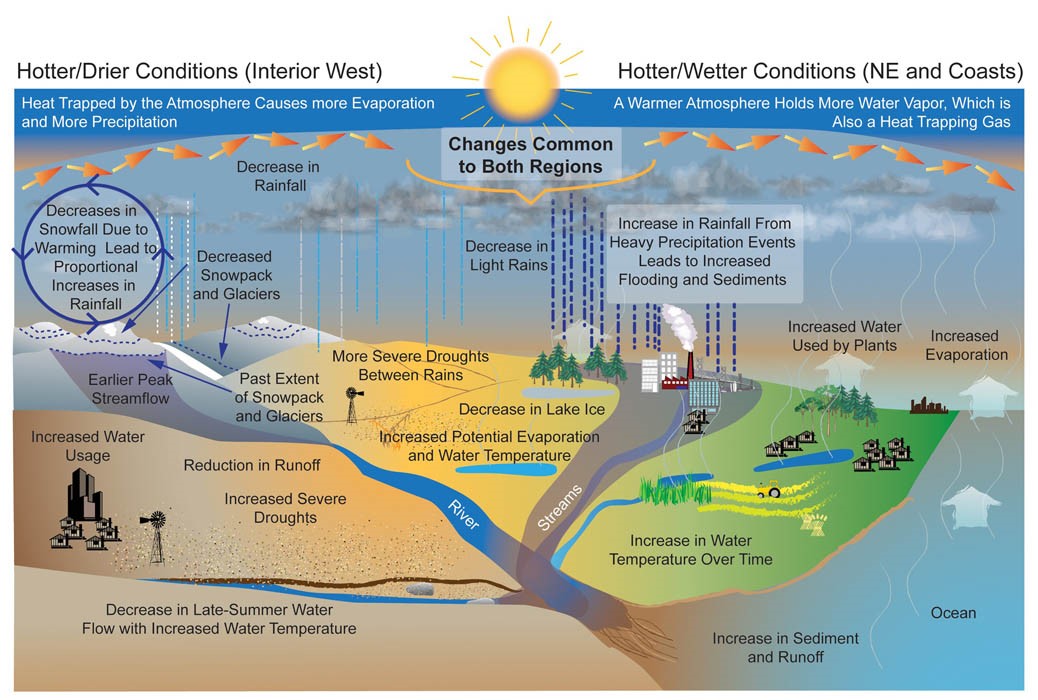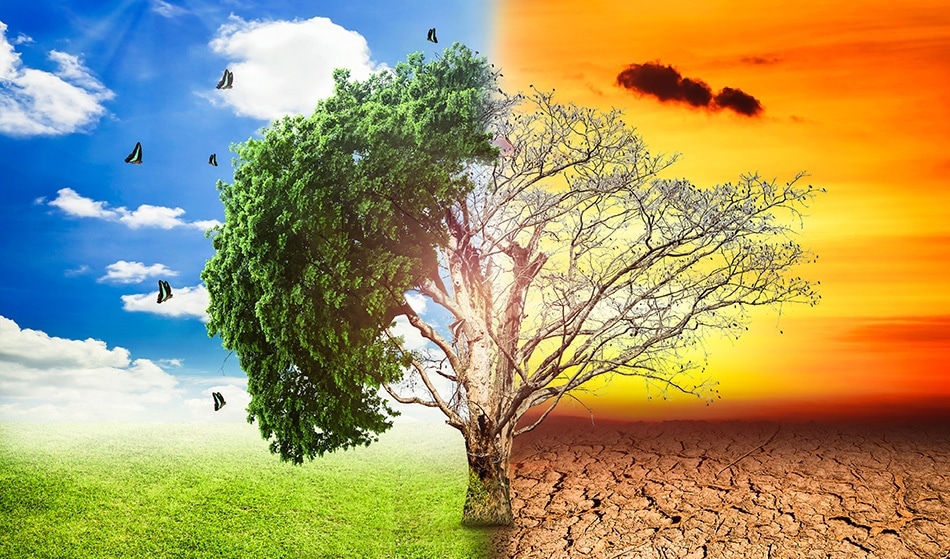Global warming is the biggest concern of the world
What is Global Warming (Climate change)?
A. Global
(World) + Warming (Heat) = World getting heated gradually with time called Global
Warming.
Why does Global warming occur?
A. Global
warming occurs when air pollutants like carbon dioxide (CO2), Carbon monoxide,
Sulphur dioxide, CFC gas (Chlorofluorocarbon gas used in Refrigeration/AC) collect
in the atmosphere and absorb sunlight (solar radiation) that have bounced off
the earth’s surface. Normally this radiation would escape into space, but these
pollutants (CFC gas) which can last for years to centuries in the atmosphere, trap
the heat and cause the planet to get hotter. These heat-trapping pollutants (specifically
carbon dioxide, methane, nitrous oxide and water vapor) and synthetic
fluorinated gases are known as greenhouse gases and their impact is called the
greenhouse effect.
Though natural
cycles and fluctuations have caused the earth’s climate to change several times
over the last 8 million years and our current era of global warming is directly
attributable to human activity; specifically, the burning of fossil fuels such
as coal, oil, gasoline, and natural gas which results in the release of air
pollutants in atmospheres and create greenhouse effect.
Impact of Global warming.
Global warming refers to the gradual increase in the Earth's average temperature caused by the accumulation of greenhouse gases in the atmosphere, primarily carbon dioxide (CO2) emitted by human activities such as burning fossil fuels, deforestation and industrialization. Global warming has significant and far-reaching impacts on the Earth's climate, ecosystems and human societies.
The Earth's average
temperature has increased by about 1.1 degrees Celsius (2 degrees
Fahrenheit) since the industrial revolution era (1850-1900) and this warming
trend is projected to continue and accelerate in the coming decades. According
to the Intergovernmental Panel on Climate Change (IPCC), the world's leading
authority on climate science, the global temperature
could rise by 1.5-4.5 degrees Celsius (2.7-8.1
degrees Fahrenheit) in next 30 years, depending on the level of the greenhouse
gas emissions.
The cost (consequences)
of global warming is already visible and widespread that we are facing nowadays.
The melting of ice caps and glaciers is causing sea levels to rise, threatening
coastal cities and islands. Heatwaves and wildfires are becoming more frequent
and severe, causing damage to crops, forests and infrastructure. The warming of
oceans is leading to coral bleaching (decolorizing), ocean acidification and
changes in marine ecosystems. Extreme weather events such as hurricanes and
floods are becoming more intense and destructive, causing loss of life and
property damage.
Global warming also has significant impacts on human societies, particularly in developing countries. Climate change intensifies poverty, food insecurity, water scarcity, and the spread of diseases such as malaria and dengue fever. Climate refugees people displaced by climate-related events such as droughts (Low rainfall), floods, and sea-level rise are becoming more common putting pressure on already strained resources and increasing social tensions.
How to come out Global warming situation?
Reducing greenhouse
gas emissions and re-foresting are essential to limit the impacts of global
warming. The Paris Agreement, a global treaty signed by nearly 200 countries in
2015, aims to limit the global warming to well below 2 degrees Celsius (3.6
degrees Fahrenheit) above pre-industrial levels and make an effort to limit the
temperature increase to 1.5 degrees Celsius (2.7 degrees Fahrenheit). To
achieve this goal countries have pledged to reduce their greenhouse gas
emissions and increase their renewable energy sources.
However,
despite the efforts of many countries, greenhouse gas emissions continue to
rise, and the world is not on track to meet the goals of the Paris Agreement.
The burning of fossil fuels particularly coal, remains a significant source of
greenhouse gas emissions and many countries continue to subsidize the fossil
fuel industry. Deforestation particularly in tropical regions is also a
significant contributor to greenhouse gas emissions.
To address
global warming, we need a comprehensive and coordinated effort involving
governments, businesses and individuals. Governments need to adopt policies
that incentivize (Tax incentives) the transition to a low-carbon economy such
as carbon pricing, renewable energy targets and regulations on emissions from
the transportation and industrial sectors. Businesses need to take action to
reduce their emissions and transition to renewable energy sources and invest in research and development of new technologies that can help address
global warming. Individuals also have a role to play by reducing their carbon
footprint through lifestyle changes such as reducing meat consumption, using
public transportation, choosing energy-efficient products and do plantations.
Global warming is one of our planet's biggest (significant) challenges now. It has already caused significant damage to the Earth's climate, ecosystems and human societies, and if left unchecked, it will continue to get worse in the coming decades. To address global warming; we must do comprehensive and coordinated efforts involving governments, businesses and individuals and we need to act quickly and decisively to reduce greenhouse gas emissions and transition to a low-carbon economy by taking action.
To read more about Global warming; below are the links. Please share, like and comment how this information is helpful to you and what next you want to know about.
- The Uninhabitable Earth: Life After Warming https://amzn.to/429wiwj
- Losing Earth: https://amzn.to/4183Klt
- An Inconvenient Truth: The Planetary Emergency of Global Warming and What We Can Do About It: https://amzn.to/3HIa1h0
- The Great Warming: Climate Change and the Rise and Fall of Civilizations: https://amzn.to/42tDHq5




